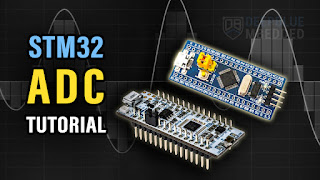What is the preferred way to install STM32CubeIDE on Linux?
The “normal” / preferred way is to use ST’s own Linux installer script for your distro, not random third-party packages.
On Linux ST actually offers three bundles, all installed the same way:
-
...rpm_bundle.sh→ for Fedora / RHEL / CentOS / openSUSE (RPM-based) -
...deb_bundle.sh→ for Ubuntu / Debian (Deb-based) -
plain
.sh→ generic Linux (good fallback if the distro is too new and the deb/rpm bundle complains about deps)
1. Recommended installation (any distro, using ST installer)
-
Go to the official STM32CubeIDE page and download the Linux installer for your architecture.
-
Open a terminal in the download folder.
-
Make the installer executable (optional but nice):
-
Run it with root privileges:
-
Replace the
*with whatever version string you downloaded, e.g.
st-stm32cubeide_1.16.0_36100_20240131_1500_amd64.sh
-
-
Follow the text-mode wizard (license, install path, components).
-
After it finishes, you can usually launch it from your desktop menu or with:
This is exactly what ST describes in UM2563 “STM32CubeIDE installation guide” for Linux.
2. If you’re on Ubuntu/Debian
You have two options:
A) Use the Debian bundle (*_deb_bundle.sh)
This script unpacks several .deb files and installs them with apt for you. The steps are the same as above:
Internally it runs something equivalent to:
B) If the deb bundle complains about old libraries (Debian 12 / Ubuntu 23+)
On newer Debian/Ubuntu, people hit issues with Python 2.7 / old libs when using the deb bundle. ST’s own forum and users often recommend switching to the generic .sh installer instead, which avoids those package-level dependency problems.
So if the deb_bundle refuses to install cleanly, just download the generic Linux .sh variant and install it as in section 1.
3. Alternative: Flatpak (nice if you want sandboxing / easy updates)
If you don’t care about “official ST only”, there is a Flatpak on Flathub:
This works on almost any distro and isolates STM32CubeIDE in a sandbox, which many Linux devs like.
TL;DR
-
Preferred / official:
Download from ST → runsudo sh ./st-stm32cubeide_<version>_<arch>.<deb_bundle.sh | rpm_bundle.sh | sh> -
On very new Debian/Ubuntu:
If the deb bundle whines about dependencies, switch to the generic.shinstaller. -
If you want distro-agnostic packaging:
Use the Flathub Flatpak (com.st.STM32CubeIDE).
.jpg)



评论
发表评论